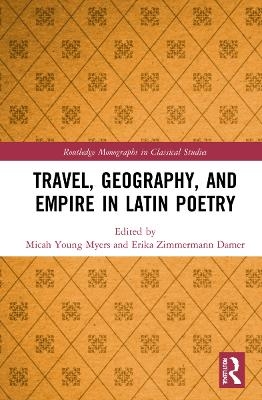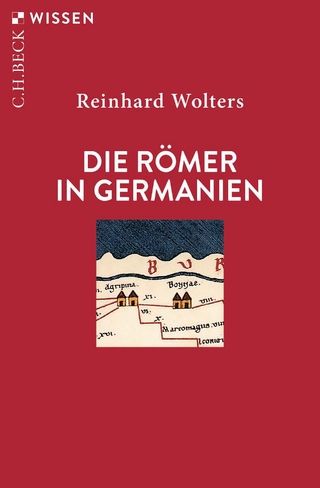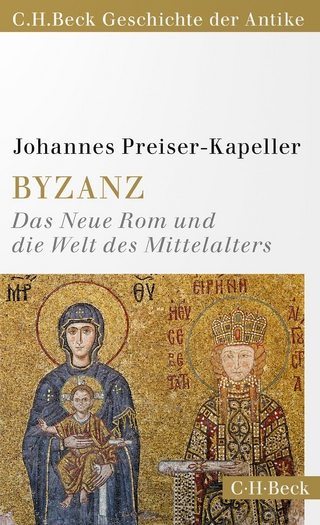
Travel, Geography, and Empire in Latin Poetry
Routledge (Verlag)
978-0-367-63804-7 (ISBN)
This volume considers representations of space and movement in sources ranging from Roman comedy to late antique verse, exploring how poetry in the Roman world is fundamentally shaped by its relationship to travel within the geography of Rome’s far-reaching empire.
The volume surveys Roman poetics of travel and geography in sources ranging from Plautus to Augustan poetry, from the Flavians to Ausonius. The chapters offer a range of approaches to: the complex relationship between Latin poetry, Roman identity, imperialism, and travel and geospatial narratives; and the diachronic and generic evolutions of poetic descriptions of space and mobility. In addition, two chapters, including the concluding one, contextualize and respond to the volume’s discussion of poetry by looking at ways in which Romans not only write and read poems about travel and geography, but also make writing and reading part of the experience of traveling, as demonstrated in their epigraphic practices. The collection as a whole offers important insights into Roman poetics and into ancient notions of movement and geographical space.
Travel, Geography, and Empire in Latin Poetry will be of interest to specialists in Latin poetry, ancient travel, and Latin epigraphy as well as to those studying travel writing, geography, imperialism, and mobility in other periods. The chapters are written to be accessible to researchers, graduate students, and advanced undergraduates.
Micah Young Myers is Associate Professor of Classics at Kenyon College, USA. He is the co-editor of Walking through Elysium: Vergil’s Underworld and the Poetics of Tradition. He is preparing a monograph on travel in Latin love elegy. Erika Zimmermann Damer is Associate Professor of Classics and Women, Gender, and Sexuality Studies at the University of Richmond, USA. She is the author of In the Flesh: Embodied Identities in Roman Elegy. Her publications also include essays on Tibullus, Propertius, Horace, and graffiti from Herculaneum and Pompeii.
List of figures; List of contributors; Acknowledgements; 1 Introduction: Traversing Empire, Micah Young Myers and Erika Zimmermann Damer; 2 The Stage at The Fair: Trade and Human Trafficking in the Palliata, Amy Richlin; 3 Expanding Geographies and Unbounded Subjects in Catullus, Sara H. Lindheim; 4 Arcadia and the Roman Imagination, Eleanor W. Leach; 5 Women’s Travels in Latin Elegy, Alison Keith; 6 On the Road with Tibullus: Aporia or Castration as the Way of Love, Paul Allen Miller; 7 Competing Itineraries, Travel, and Urban Subjectivity in Ovid’s Ars Amatoria, Erika Zimmermann Damer; 8 Statius’ Propemptikon and the Geopoetics of Silvae 3.2, Carole E. Newlands; 9 Martial, Spain, and the Girls from Gades: Travel and Identity in Flavian Epigram, Sarah H. Blake; 10 Memory Spaces of Ausonius and Rutilius Namatianus, Grant Parker; 11 Travelers and Texts: Reading, Writing, and Communication on the Roads of the Roman West, Alexander Meyer; Index
| Erscheinungsdatum | 01.10.2021 |
|---|---|
| Reihe/Serie | Routledge Monographs in Classical Studies |
| Zusatzinfo | 3 Halftones, black and white; 3 Illustrations, black and white |
| Verlagsort | London |
| Sprache | englisch |
| Maße | 156 x 234 mm |
| Gewicht | 526 g |
| Themenwelt | Geschichte ► Allgemeine Geschichte ► Altertum / Antike |
| Geisteswissenschaften ► Sprach- / Literaturwissenschaft ► Anglistik / Amerikanistik | |
| Geisteswissenschaften ► Sprach- / Literaturwissenschaft ► Literaturwissenschaft | |
| ISBN-10 | 0-367-63804-5 / 0367638045 |
| ISBN-13 | 978-0-367-63804-7 / 9780367638047 |
| Zustand | Neuware |
| Haben Sie eine Frage zum Produkt? |
aus dem Bereich


